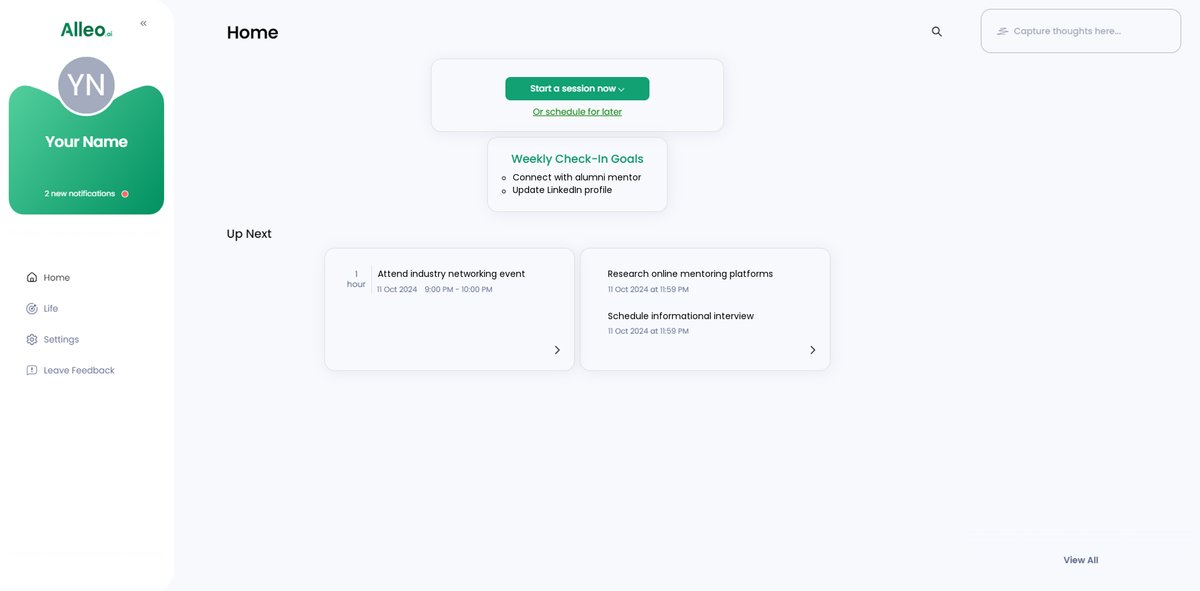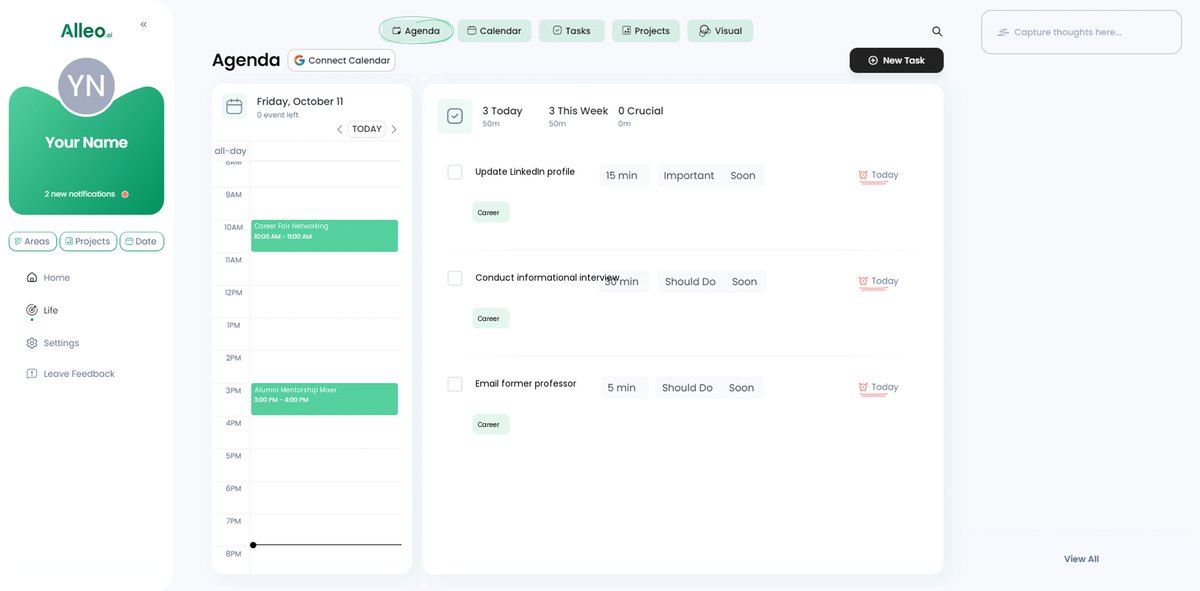How to Find Career Mentors as a Recent Graduate: 7 Proven Steps to Success
Have you ever wondered how to find career mentors after graduation? As a recent graduate, navigating the professional world can be challenging.
As a life coach, I’ve helped many young professionals develop career advice strategies. In my experience, finding the right mentor can make a world of difference in your career development.
In this article, you’ll discover actionable strategies for finding career mentors after graduation, from leveraging university alumni networks to joining virtual mentoring opportunities. We’ll cover detailed steps to connect with industry experts and make the most of your internships, including professional networking tips and building relationships with senior colleagues.
Let’s dive in to explore these mentorship programs for young professionals.

Common Challenges in Finding Career Mentors
Many recent graduates find it tough to identify effective mentors when finding career mentors after graduation. The transition from college to the professional world can be overwhelming without guidance, making career advice for new graduates crucial.
Often, people struggle to make meaningful connections in their industry through professional networking tips. Without mentorship programs for young professionals, career progression can feel daunting and lonely.
In my experience, several clients report feeling lost after graduation. They don’t know where to start or who to approach when finding industry experts to guide you.
Imagine the frustration of navigating your career without a compass, highlighting the importance of building relationships with senior colleagues.
Unfortunately, lacking mentorship can significantly impact your confidence and career trajectory. It’s a common issue, but there are solutions, including virtual mentoring opportunities and career development strategies.
Let’s explore them together, including leveraging LinkedIn for mentor connections and utilizing alumni networks for mentorship.

Key Steps to Finding Career Mentors as a Recent Graduate
Overcoming this challenge of finding career mentors after graduation requires a few key steps. Here are the main areas to focus on to make progress:
- Utilize university alumni mentorship programs: Reach out to your university’s career center and engage with alumni networks for mentorship.
- Join professional networking platforms like LinkedIn: Create a compelling profile and connect with industry experts to guide you.
- Attend industry events and career fairs: Research, register, and follow up with contacts made during these events for potential mentorship opportunities.
- Reach out to professors for guidance and referrals: Schedule meetings and ask for industry referrals to support your career development strategies.
- Participate in online mentoring communities: Join platforms like MentorCity for ongoing mentorship and virtual mentoring opportunities.
- Conduct informational interviews with professionals: Identify and reach out to professionals in your desired field for career guidance.
- Leverage internship connections for mentorship: Reconnect with past supervisors and build relationships with senior colleagues for career advice.
Let’s dive into these strategies for finding career mentors after graduation!
1: Utilize university alumni mentorship programs
University alumni mentorship programs are a valuable resource for finding career mentors after graduation. These programs can help recent graduates connect with experienced professionals who can provide career advice for new graduates.
Actionable Steps:
- Reach out to your university’s career center to explore available mentorship programs.
- Schedule a meeting with a career advisor to discuss mentorship opportunities and professional networking tips.
- Join alumni networks for mentorship and participate in mentoring events.
- Sign up for alumni newsletters and attend at least one virtual mentoring opportunity or in-person networking event per month.
- Connect with alumni through university-specific platforms.
- Use the university’s online portal to find and reach out to industry experts to guide you in your field of interest.
Explanation: Utilizing alumni mentorship programs can help you build relationships with senior colleagues who share your educational background.
These connections can provide valuable career development strategies and open doors to job opportunities. According to the University of Northern Colorado, alumni networks can be a crucial resource for career advice and job opportunities.
Key benefits of alumni mentorship programs include:
- Access to industry-specific knowledge
- Opportunities for career guidance through informational interviews
- Expanded professional network
By engaging with these programs and leveraging LinkedIn for mentor connections, you can use the experiences and networks of alumni to navigate your career path more effectively when finding career mentors after graduation.

2: Join professional networking platforms like LinkedIn
Joining professional networking platforms like LinkedIn is crucial for finding career mentors after graduation and connecting with industry professionals.
Actionable Steps:
- Create a compelling LinkedIn profile highlighting your goals and achievements. Update your profile picture, summary, and add relevant skills and experiences to attract potential mentors and showcase your career development strategies.
- Join LinkedIn groups related to your industry. Participate in group discussions and post questions to engage with potential mentors and leverage LinkedIn for mentor connections.
- Connect with industry professionals and request informational interviews. Send personalized connection requests to at least five industry experts to guide you per week, focusing on building relationships with senior colleagues.
Explanation: Utilizing LinkedIn can significantly expand your professional network, making it easier to find career mentors after graduation and industry contacts.
Engaging in groups and discussions can showcase your interest and dedication, opening up virtual mentoring opportunities.
According to the Mississippi State University Career Center, leveraging online platforms is a key strategy for career development.
Implementing these steps can open doors to valuable mentorship and career opportunities, including access to alumni networks for mentorship.

3: Attend industry events and career fairs
Attending industry events and career fairs is essential for networking and finding career mentors after graduation in your field.
Actionable Steps:
- Research and register for industry-specific events and career fairs. Attend at least one industry event or career fair every quarter to enhance your professional networking tips.
- Prepare an elevator pitch to introduce yourself to potential mentors. Practice your pitch and have business cards ready to distribute, which is crucial for building relationships with senior colleagues.
- Follow up with contacts made during these events. Send follow-up emails to at least three new contacts after each event, leveraging LinkedIn for mentor connections.
Explanation: Attending industry events and career fairs allows you to meet professionals face-to-face and build meaningful connections, which is key to finding career mentors after graduation.
These events provide opportunities to practice your networking skills and make a lasting impression, essential for career development strategies.
According to the University of Nebraska-Lincoln, engaging in these activities can significantly enhance your career prospects by expanding your professional network and opening doors to mentorship programs for young professionals.
These steps can help you navigate the professional world with confidence and build a strong network of mentors, offering valuable career advice for new graduates.

4: Reach out to professors for guidance and referrals
Seeking guidance and referrals from professors can be a significant step in finding career mentors after graduation.
Actionable Steps:
- Schedule meetings with your favorite professors to discuss career goals. Prepare a list of questions and topics for discussion, including career advice for new graduates.
- Ask for referrals to industry professionals and potential mentors. Request at least two referrals from each professor you meet, focusing on finding industry experts to guide you.
- Maintain regular contact with professors to seek ongoing advice. Send update emails every few months to keep them informed of your progress and explore virtual mentoring opportunities.
Explanation: Professors often have extensive networks and can offer valuable referrals to industry professionals, aiding in professional networking tips.
By maintaining these relationships, you can gain continuous support and guidance, enhancing your career development strategies.
According to the University of Chicago, engaging with professors can provide critical insights and connections for early-career professionals, supporting your efforts in finding career mentors after graduation.
This proactive approach can significantly enhance your career prospects and provide a steady source of mentorship, similar to leveraging LinkedIn for mentor connections.

5: Participate in online mentoring communities
Participating in online mentoring communities is crucial for finding career mentors after graduation and building connections with professionals across various industries.
Actionable Steps:
- Join platforms like MentorCity or Ten Thousand Coffees. Complete your profile and actively engage in community discussions to explore virtual mentoring opportunities.
- Schedule mentoring sessions with community members. Aim for at least one mentoring session per month to gain insights and career advice for new graduates.
Explanation: Engaging in online mentoring communities provides access to diverse perspectives and experiences. This approach can help you find industry experts to guide you and offer valuable guidance.
According to the UNT Career Center, these platforms can connect you with alumni networks for mentorship and industry professionals, enhancing your career development strategies.
Key advantages of online mentoring communities:
- Access to a global network of professionals for finding career mentors after graduation
- Flexible scheduling for mentoring sessions and informational interviews for career guidance
- Diverse range of industry perspectives and professional networking tips
Taking these steps ensures you continuously receive mentorship and support throughout your career journey, while leveraging LinkedIn for mentor connections and building relationships with senior colleagues.

6: Conduct informational interviews with professionals
Conducting informational interviews with professionals is a vital step to gain industry insights and establish mentor relationships, especially when finding career mentors after graduation.
Actionable Steps:
- Identify professionals in your desired field for informational interviews. Use LinkedIn and company websites to find potential interviewees and leverage alumni networks for mentorship opportunities.
- Prepare a list of questions to gain insights into their career paths. Write down at least ten questions to ask during each interview, focusing on career advice for new graduates and professional networking tips.
- Follow up with a thank-you note and request further mentorship if appropriate. Send personalized thank-you emails within 24 hours of the interview, exploring virtual mentoring opportunities if needed.
Explanation: These steps help you build a network of mentors who can offer valuable career advice. Informational interviews provide firsthand insights into your chosen industry and help you develop meaningful connections with senior colleagues and industry experts to guide you.
According to the Hertelier, mentorship can significantly impact career growth and lead to promotions. By following up, you show appreciation and keep the door open for future guidance, which is crucial for finding career mentors after graduation.
These steps can help you build a strong foundation for your career development strategies.

7: Leverage internship connections for mentorship
Leverage internship connections for mentorship to gain valuable career guidance and support, which is crucial for finding career mentors after graduation.
Actionable Steps:
- Reconnect with supervisors and colleagues from past internships. Send LinkedIn messages or emails to re-establish contact, utilizing professional networking tips.
- Request mentorship or advice on career development. Ask for a meeting or call to discuss your career goals and seek guidance, essentially conducting informational interviews for career guidance.
- Maintain ongoing relationships with these connections. Schedule regular check-ins every few months to update them on your progress, building relationships with senior colleagues.
Explanation: These steps help maintain professional relationships that can be crucial for career development strategies. Internships provide a foundation for long-term mentorship opportunities and are excellent for finding industry experts to guide you.
According to the Keiser University, business mentors provide guidance and support to developing professionals. By leveraging these connections, you can receive continuous support and insights as you navigate your career path, which is essential for career advice for new graduates.
Potential benefits of leveraging internship connections:
- Industry-specific career advice
- Insider knowledge of job opportunities
- Long-term professional relationships
Building on these relationships ensures you always have a mentor to turn to for advice and guidance. This approach to finding career mentors after graduation can be complemented by exploring virtual mentoring opportunities and leveraging LinkedIn for mentor connections.

Partner with Alleo to Find Your Career Mentor
We’ve explored how to find career mentors after graduation and the steps to achieve it. Did you know you can work with Alleo to make this journey easier and faster for finding industry experts to guide you?
Set up an account and create a personalized plan. Alleo’s AI coach provides affordable, tailored coaching support for your mentorship search, offering career advice for new graduates and professional networking tips.
Enjoy full coaching sessions like any human coach, focusing on career development strategies.
The coach will follow up on your progress and handle changes. You’ll stay accountable via text and push notifications, enhancing your virtual mentoring opportunities.
Alleo offers a free 14-day trial, with no credit card required, perfect for exploring mentorship programs for young professionals.
Ready to get started for free? Let me show you how to leverage LinkedIn for mentor connections!
Step 1: Log In or Create Your Alleo Account
To begin your mentorship journey with Alleo’s AI coach, log in to your existing account or create a new one in just a few clicks.

Step 2: Choose Your Focus Area
Select “Setting and achieving personal or professional goals” to begin your mentorship journey. This option will help you clarify your career objectives and develop a targeted plan for finding the right mentor to guide you towards success.

Step 3: Select “Career” as Your Focus Area
Choose “Career” as your focus area in Alleo to receive tailored guidance on finding a mentor and advancing your professional goals, aligning perfectly with your journey as a recent graduate seeking career mentorship.

Step 4: Starting a coaching session
To begin your journey with Alleo’s AI coach, initiate your first coaching session by selecting the “Start Session” option, which will guide you through an intake process to establish your mentorship goals and create a personalized action plan.

Step 5: Viewing and Managing Goals After the Session
After your coaching session, check the Alleo app’s home page to review and manage the goals you discussed with your AI mentor, helping you stay on track with your career mentorship journey.

Step 6: Adding events to your calendar or app
Use Alleo’s calendar and task features to schedule and track your mentorship-related activities, such as informational interviews, networking events, and follow-up meetings, ensuring you stay organized and accountable in your quest to find a career mentor.

Bringing It All Together: Your Path to Finding a Mentor
As you can see, finding career mentors after graduation involves several actionable steps.
By leveraging university alumni networks for mentorship, professional networking platforms, industry events, professor guidance, and virtual mentoring opportunities, you can build strong mentor relationships with senior colleagues and industry experts.
Remember, each step you take in your career development strategy brings you closer to finding the right mentor for your career growth.
It might feel overwhelming now, but don’t worry.
You have the power to shape your future.
Why not make it easier with Alleo?
Our AI life coach is here to support you every step of the way in finding career mentors after graduation.
Try Alleo for free and start your mentorship journey today, exploring career advice for new graduates and professional networking tips.